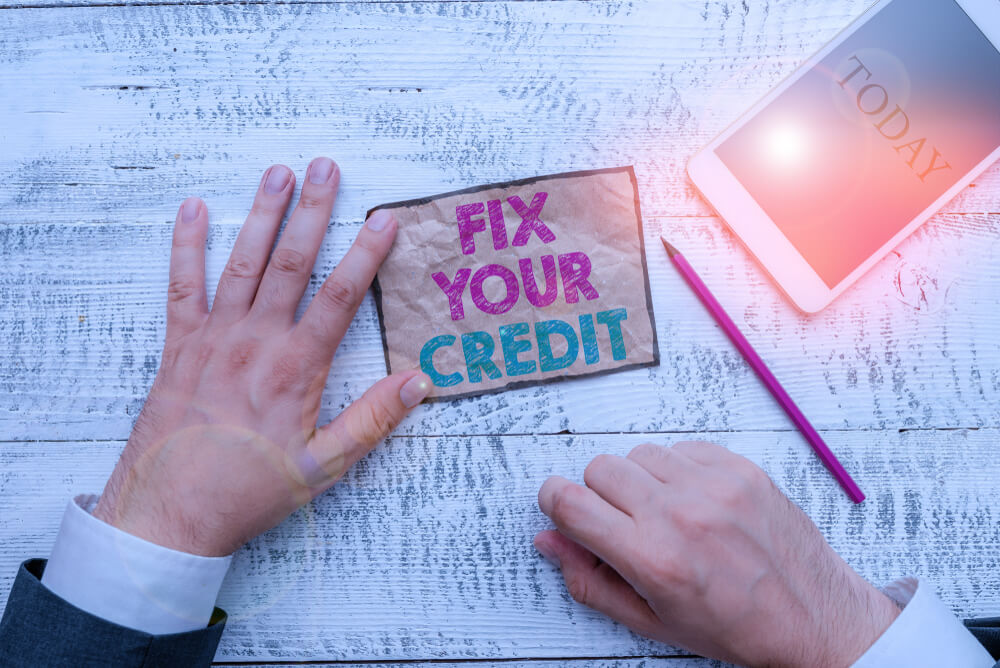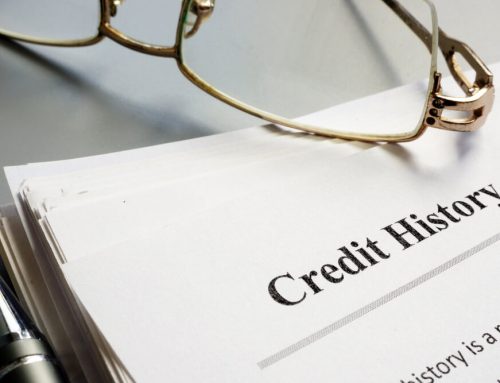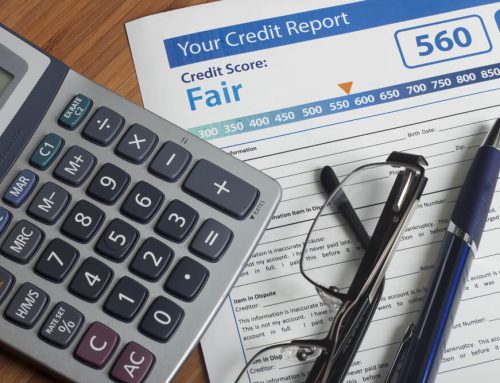Understanding & Fixing Your Credit Score
Fix Your Credit Score
Before they approve you for a loan, lenders want to have some assurance that you will pay them back on time and in full. To make that determination, they will check out your credit score. This score is very important in determining your rates on loans, how much your insurance costs, and even what financial opportunities are available to you. Even employment can be contingent on having a good credit score.
A credit score is determined by various factors on your credit report. That report details your financial actions, such as all the accounts you have opened, whether or not you have been paying those accounts on time, how much money you owe, what your credit limits are, how long you have been using credit, and more. Even bankruptcy and tax liens show up on the report, and three different credit reporting agencies compile the report. These are TransUnion, Equifax, and Experian, and you can get a free report from each of them once a year.
Each month, the agencies update your report with any new information. Your credit card issuer, mortgage lender, and car loan lender, all report to the agencies, updating them on your financial transactions. If there is new negative information about you, that is reported each month as well. If you filed for bankruptcy, paid late, or missed a payment, then it’s all recorded there on your credit report. If you have a high credit score, lenders believe you are more likely to pay back your loans fully and on time. Those with low scores are considered risks and are not expected to pay back in a timely manner or use their finances responsibly.
What your creditor’s supply to the reporting bureaus affects your score. As new information comes in, your score can increase or decrease depending on whether it is negative or positive. For instance, your score will decrease if you miss a payment.
The three main credit scoring systems all use the same basic information when calculating your score. They are:
History of Payments
- How many accounts are late
- How many accounts have been paid on time
- Public records with negative connotations, such as bankruptcy, suits, liens, and more
- How much you owe to collections
How Much You Owe

The amount you owe is made up of all the credit balances you have. When compared to how much is available on those cards, those credit card balances are called the credit utilization ratio. If you have a card with $1,000 in available credit and are using $500 of it, your credit utilization ratio is 10%.
How much you owe also includes what you owe on installment loans compared to how much you originally borrowed.
It further includes the number of accounts you have that retain balances.
The Kinds of Credit You Are Using
It includes all the different types of credit you may have at the moment, such as credit cards, car loans, mortgages, home equity, and more. The larger variety you have, the better your score will be.
Credit History Age
This includes:
- How old your accounts are on average
- How long has each type of account been open
- How long it has been since any activity occurred on the accounts
New Credit
This includes:
- How many new accounts have you opened
- How many credit inquiries were made
- When the last credit inquiry occurred
Fixing Your Credit Score

You can fix your credit score in a few key ways.
Most credit reports will give you a higher score for having older accounts than newer ones. However, the factors they give the most weight to are payment history and how much you owe. It is important to do well in every category to make your score as great as it can be.
Here are a few ways you can improve your credit score.
Each year, you get a credit report from one of the three bureaus. Look for any inaccuracies on those reports and have them disputed and fixed, if possible. The report, however, does not have your credit score. It is a detailed listing of all the financial activities you have made that weigh into your score. You can purchase your credit score from the bureau, but you can get it free from your credit card company in most cases.
You also want to pay your bills on time every month. If you make a payment late, it can seriously drag down your score. When you miss a payment, correct the problem and make that payment as soon as you can. The longer you pay consistently, the better your score will be.
Maintain low balances when possible. You want to keep your credit utilization below 30% if you can. If you max out your credit cards, then your utilization ratio will be very high, and your credit score will decrease.
Make sure you pay off your debts rather than try to move that debt around.
Only open new accounts when you actually need them. New accounts can hurt your average account age. Older accounts actually help your score.
If you close cards, that can hurt your score as well. That can bring down your average account age and lower your available credit.
When you apply for loans, be sure to get all your applications finished within 30 days to avoid credit score penalties.
Your credit score may fall within one of several different ranges. You should be aware that not all credit scoring methods are the same. If you have two different scores that you have obtained, then you can compare them if they are from different ranges and see where you fall on the overall scale. The number should be quite different if you have scores from two different scales.
It’s important to keep your credit score up because that score can determine how much you pay for a variety of different expenses. Loan interest rates, insurance costs, and loan availability are all dependent on your credit score. If you can improve your score, your financial opportunities will increase, and you will find better rates on just about every type of loan.
When you apply for credit but are turned down, then you can request that the creditor give you a free copy of the credit report they used. You want to look over that report to ensure its accuracy. Any time you see inaccuracies, you should have them disputed and removed to protect your credit score.



